American detainee Paul Whelan's family concerned after he missed his usual daily call
From CNN's Pierre Meilhan and Laura Ford
The family of Paul Whelan, an American the US says is wrongfully detained in Russia, is concerned for his well-being after he didn't make his usual daily call to his parents, his brother told CNN’s Paula Newton Friday.
On the detention of another American: The Whelan family issued a statement Thursday, saying they were sorry to hear about the arrest of American journalist Evan Gershkovich, who works for the Wall Street Journal.
David Whelan spoke out against a Wall Street Journal editorial calling for retaliation for the reporter's arrest.
He also pointed to a similarity between his brother's case and Gershkovich's arrest, saying the two are part of Russia’s attempt to get a concession from the US.
"Having two cases that are identical espionage charges that are obviously bogus to American citizens. It might make it easier," he said.
"To the extent that they're using this for extortion — to get a concession from the US government — that may make it simpler," Whelan added.
He said he worries the US is struggling to deter these types of detentions.
US will not provide Ukraine with ATACMS, but is looking at other options, top US general says
From CNN's Oren Liebermann and Haley Britzky
The US is not providing Ukraine with long-range ATACMS missiles, but is instead looking at other options to give the Ukrainian military a longer reach on the battlefield, according to Joint Chiefs Chair Gen. Mark Milley.
The top US general said the US has “relatively few” ATACMS, and the military has to maintain its own levels of critical weapons in its inventories. But the military is considering other possibilities, Milley said in an interview with Defense One on Friday.
“The range of the ATACMS is longer, but there’s other systems that can get to that range,” Milley said. “There’s UAVs, for example, that could do it. The Brits have a couple systems. So those are some things we’re looking at to give them a little bit more legs.”
“Right now, we’re not providing the ATACMS,” Milley said.
He noted it’s a policy decision, and he would not take anything on or off the table for the future.
The ATACMS missile has a range of approximately 200 miles, far greater than any system the US has provided to Ukraine so far.
In terms of weapons inventory, the US is also reviewing its estimates for how much munitions the military would need in a great power war after seeing how quickly Ukrainians are using up munitions, Milley said. The US currently has “sufficient ammunition in our inventory today to do what we need to do,” he said, but the defense industrial base will be working to expand its capacity over several years.
International Monetary Fund approves $15.6 billion loan for Ukraine
From CNN’s Vasco Cotovio, Rob North and Victoria Butenko
The International Monetary Fund board has approved a new 48-month extended arrangement of about $15.6 billion for Ukraine, the fund said in a statement Friday. The loan is part of a support package for Ukraine that totals $115 billion and allows for the immediate disbursement of around $2.7 billion.
Ukrainian President Volodymyr Zelensky thanked the IMF, including Managing Director Kristalina Georgieva, for approving the loan to Kyiv.
“Together we support the [Ukrainian] economy. And we are moving forward to victory,” he said in a tweet.
IMF First Deputy Managing Director Gita Gopinath complimented Ukrainian authorities for their work managing the country’s finances despite the "devastating economic and social impact" of Russia's full-scale invasion.
Gopinath admitted the risks of the program were “exceptionally high,” but she said Ukraine’s track record was a mitigating factor.
“The authorities’ track record of undertaking ambitious policies when warranted, their readiness to undertake contingency measures, and the frequent reviews in the first phase of the program are risk mitigating factors,” she said. “The program has been appropriately designed to resolve Ukraine’s balance of payments problem and restore medium-term external viability in both a baseline and downside scenario.”
Russian plan to send nuclear weapons to Belarus proves Putin-Xi talks failed, Zelensky says
From CNN’s Allegra Goodwin
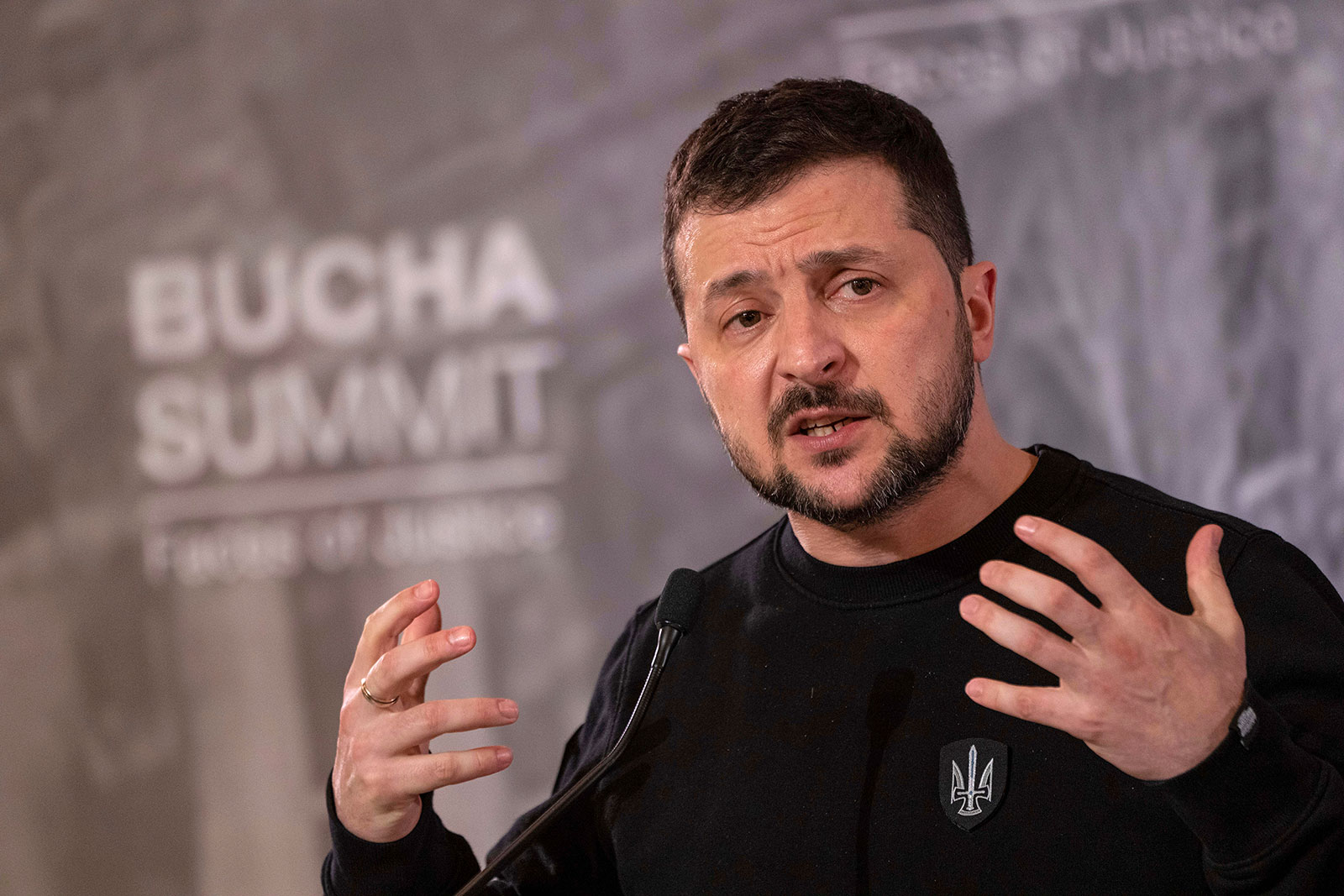 Ukrainian President Volodymyr Zelensky speaks at a press conference during Bucha Summit in Kyiv on Friday. (Evgeniy Maloletka/AP)
Ukrainian President Volodymyr Zelensky speaks at a press conference during Bucha Summit in Kyiv on Friday. (Evgeniy Maloletka/AP)Russia’s stated plan to place nuclear weapons in Belarus is proof that talks between Russian President Vladimir Putin and his Chinese counterpart Xi Jinping earlier this month failed, Ukrainian President Volodymyr Zelensky said Friday.
Though China had appeared to position itself as a peace broker between Russia and Ukraine in the weeks leading up to Xi’s three-day state visit to Moscow, the meetings between the two leaders did not yield a meaningful breakthrough on resolving the conflict.
The Ukrainian president also said Belarusian strongman Alexander Lukashenko has “lost any importance,” claiming he “doesn’t decide anything about what kind of weapons are based in his country.”
Some background: Putin announced last week that Moscow will construct a storage facility for tactical nuclear weapons in Belarus, completing it by the start of July. Lukashenko welcomed the move in a national address Friday, adding that Russia could also station strategic nuclear weapons in his country.
The mentioning of strategic nukes, which can decimate entire cities, is an escalation in rhetoric from Lukashenko. Russia has not publicly announced any plans to send strategic nuclear weapons to Belarus.
Global reaction: While there is no guarantee Putin will follow through on his plans for Belarus, any nuclear signaling by Putin causes concern in the West.
Ukraine, NATO and the European Union's top diplomat have condemned the plan. The US has downplayed the move, saying there are no indications Russia will use nuclear weapons.
The nuclear announcement comes as Putin faces mounting problems elsewhere. Read CNN analysis on the decision here.
CNN's Andrew Carey, Ivana Kottasová, Lindsay Isaac and Anna Chernova contributed to this report.
Ukraine's top general says Russian cruelty in Bucha is "forever etched in the national memory"
From CNN's Vasco Cotovio and Yulia Kesaieva
Commander in Chief of Ukraine’s Armed Forces Gen. Valerii Zaluzhnyi said Russia’s actions during the occupation of Bucha will always be remembered in Ukraine’s “national memory.”
“Bucha. A suburb of the capital. An important hub of the entire Kyiv defense area. A symbol of Ukrainian resistance,” Ukraine’s top general wrote on Facebook on the one-year anniversary of Bucha being taken back from Russian troops. “33 days of occupation, more than 9 thousand recorded Russian war crimes.”
“Their cruelty is forever etched in the national memory,” Zaluzhnyi added.
The general said Ukraine’s efforts to liberate the Kyiv suburb showed the world that the country would not give up.
“The joint actions of the Defense Forces, volunteers, and locals have succeeded in driving out the enemy,” he said. “The de-occupation of the Kyiv region has demonstrated to the world that Ukrainians will not give up a single piece of their land.”
“We remember the Heroes who laid down their lives for the sake of Ukraine's future,” he added.
All Americans — even journalists — should leave Russia for their safety, US national security official says
From CNN's Sam Fossum
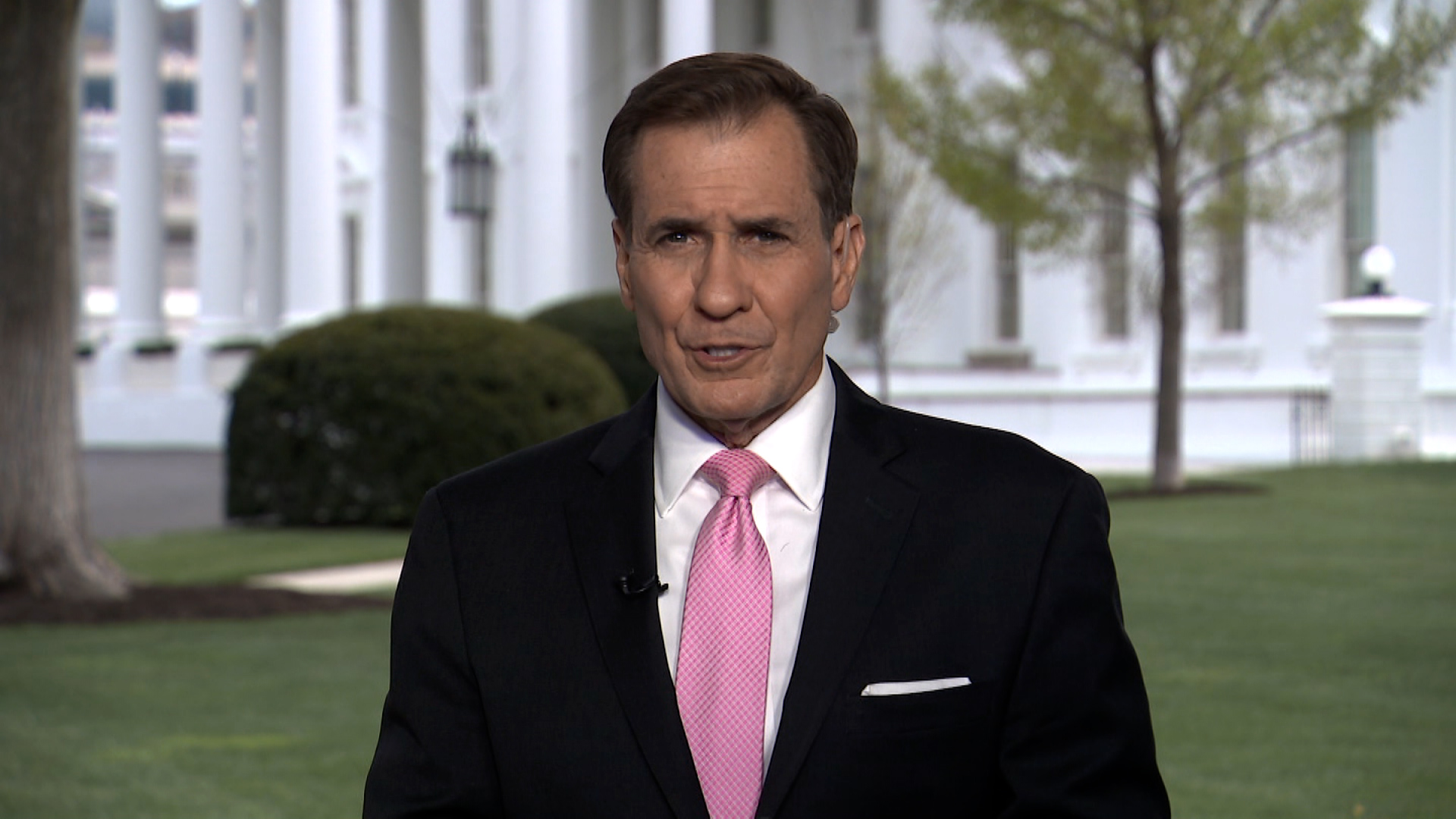 John Kirby, a spokesperson for the US National Security Council, speaks during an interview on March 31. (CNN)
John Kirby, a spokesperson for the US National Security Council, speaks during an interview on March 31. (CNN)US President Joe Biden's administration is still working to secure a meeting with detained American journalist Evan Gershkovich, who is being held in Russia's Lefortovo prison in Moscow.
US officials have described Russia's espionage allegations against the journalist as "ridiculous" and "absolutely ludicrous."
"We have not been able to achieve consular access and nobody from our embassy has been able to meet with him," John Kirby, a spokesperson for the US National Security Council, told CNN's Bianna Golodryga on Friday. "We are continuing to work on that, of course, and will until we can get that consular access to ascertain for ourselves how he's doing."
The US has previously warned US citizens against traveling to Russia. Kirby emphasized Friday that those recommendations apply even to journalists working in the country.
Leaders of more than 30 news organizations demand Russia release WSJ reporter
From CNN's Oliver Darcy
The leaders of more than 30 news organizations around the world signed a letter Thursday to the Russian ambassador to the US, Anatoly Antonov, demanding the release of imprisoned Wall Street Journal reporter Evan Gershkovich.
"Gershkovich is a journalist, not a spy, and should be released immediately and without conditions," said the letter, spearheaded by the Committee to Protect Journalists, which was made public Friday.
The letter was signed by the leaders of the Associated Press, The New York Times, The Washington Post, BBC, TIME, Euronews, Bloomberg News, Sky News, The New Yorker, and The Economist, among many others.
A representative for the Committee to Protect Journalists told CNN that the group had not received a response by Friday afternoon ET.
Gershkovich was arrested in Russia on suspicion of espionage, according to Russian authorities, the first time a US journalist has been detained on accusations by Moscow of spying since the Cold War.
In a Thursday statement, The Wall Street Journal said it “vehemently denies the allegations from the FSB and seeks the immediate release of our trusted and dedicated reporter.”
Almar Latour, the CEO of Dow Jones, which publishes The Wall Street Journal, condemned Russia’s arrest of Gershkovich in a memo to staffers Thursday, saying the company is working “around the clock” to secure his release.
“This is an incredibly disturbing development,” Latour said in a memo to staff obtained by CNN.
French presidential source: China could be only country to have "a game-changer effect" on war in Ukraine
From CNN’s Xiaofei Xu in Paris
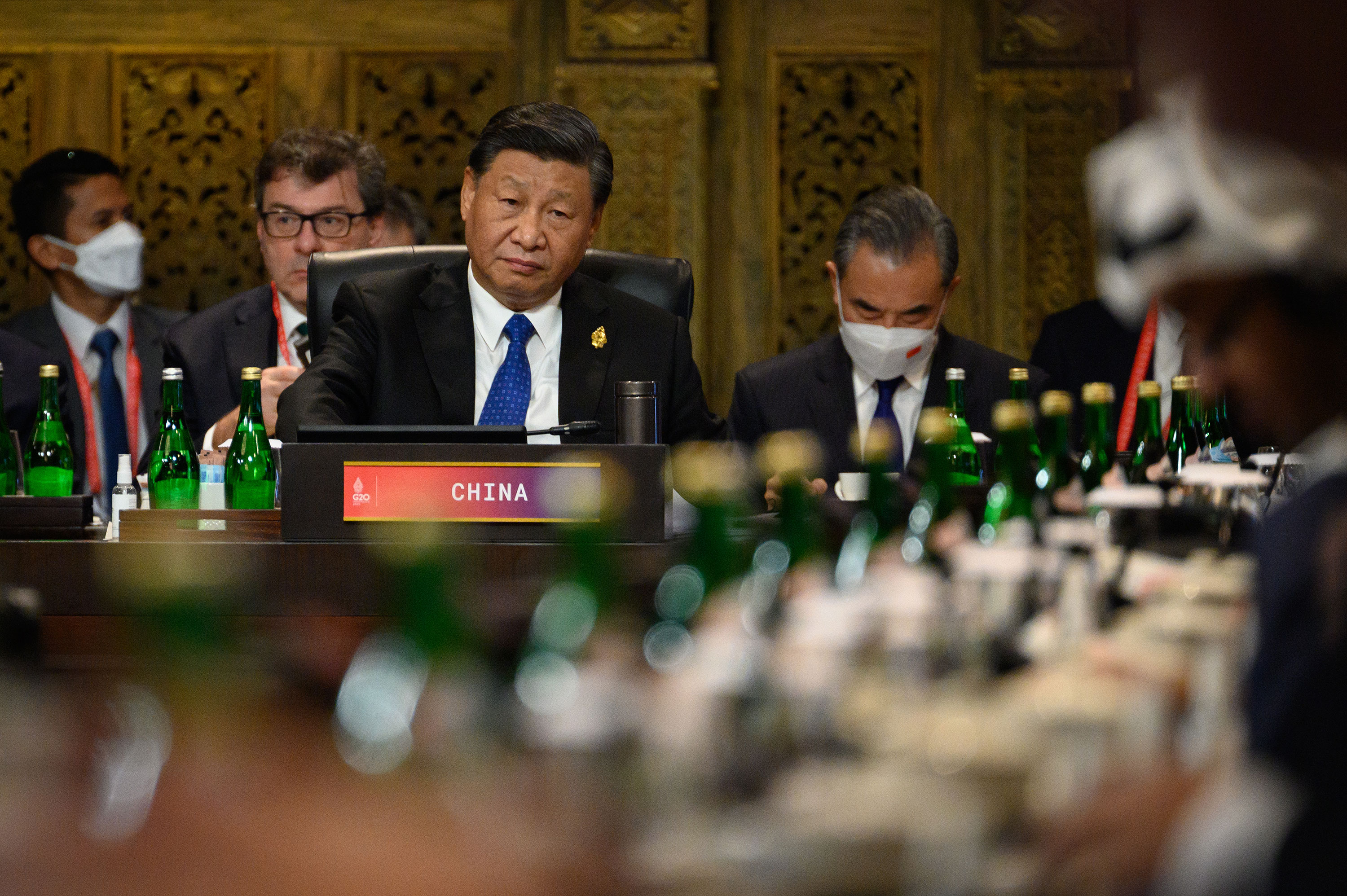 China's President Xi Jinping attends a working session during the G20 Summit in November 2022 in Nusa Dua, Indonesia. (Leon Neal/Getty Images/FILE)
China's President Xi Jinping attends a working session during the G20 Summit in November 2022 in Nusa Dua, Indonesia. (Leon Neal/Getty Images/FILE)Given its close ties with Moscow, China could be one of the only countries that can have a “game-changer effect” on the war in Ukraine, a source from the French presidency told journalists during a briefing Friday.
The source spoke on the condition of anonymity, citing professional norms, ahead of French President Emmanuel Macron’s visit to China.
Macron’s upcoming visit to China will be a crucial opportunity for France and China to reconnect at the highest level after three years of China sealing itself off due to its strict zero-Covid policy, according to the source.
Macron will arrive in Beijing on Wednesday to start his visit, one day later than previously announced, and will also visit the southern city of Guangzhou before leaving China on April 8.
With meetings scheduled with Chinese President Xi Jinping and Premier Li Qiang, Macron aims to “find a space so that we can try initiatives that are useful to the Ukrainian people and then to find a way to identify solutions to end this war in the medium term,” the source said.
He is also expected to bring up cooperation between the European Union and China, as EU Commission President Ursula von der Leyen will accompany him on the visit.
Von der Leyen will be in Paris on Monday to meet with Macron and prepare for the visit, according to the Élysée source.
Russia lists US as its main security threat in new foreign policy doctrine
From CNN staff
Russian President Vladimir Putin on Friday signed a decree on a new version of the Russian Foreign Policy Concept, which lists the US as the main security threat to Russia and "the just development of mankind."
"Moscow considers Washington's course as the main source of risks for its own and international security, for peace and the just development of mankind as a whole," the document read.
The 42-page document outlines the main objectives of Moscow’s foreign policy, among which are the strengthening of the military cooperation with allies and elimination of US dominance in world affairs.
The document made no direct mention of Ukraine even as Russia continues its full-scale invasion of the country, but did say that "Moscow is stepping up the process of registration within the framework of international law of its state border and jurisdiction over the territories it controls."
"The main goal in the near abroad is to turn the region into a zone of peace, good neighborliness and prosperity," it continued.
According to the document, Moscow also sees "risks of aggravating conflicts involving large countries, as well as their escalation into a local or global war. The factor of strength increasingly determines relations between countries."
Russia will also focus on deepening ties with India and China as well as increasing cooperation with Latin American countries.
.png)
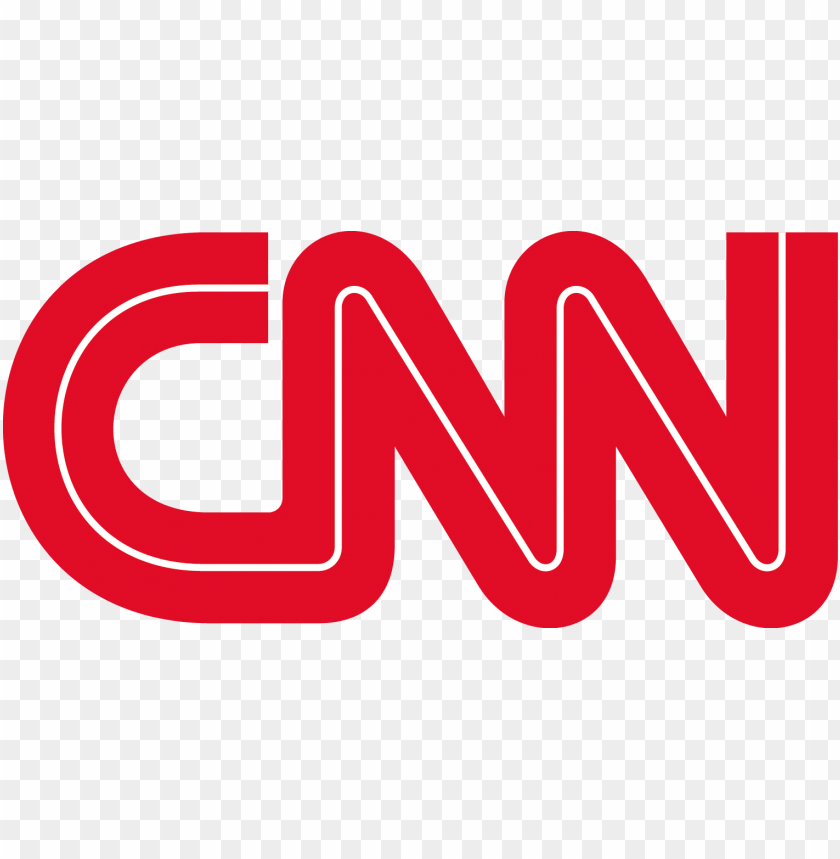 1 year ago
6
1 year ago
6


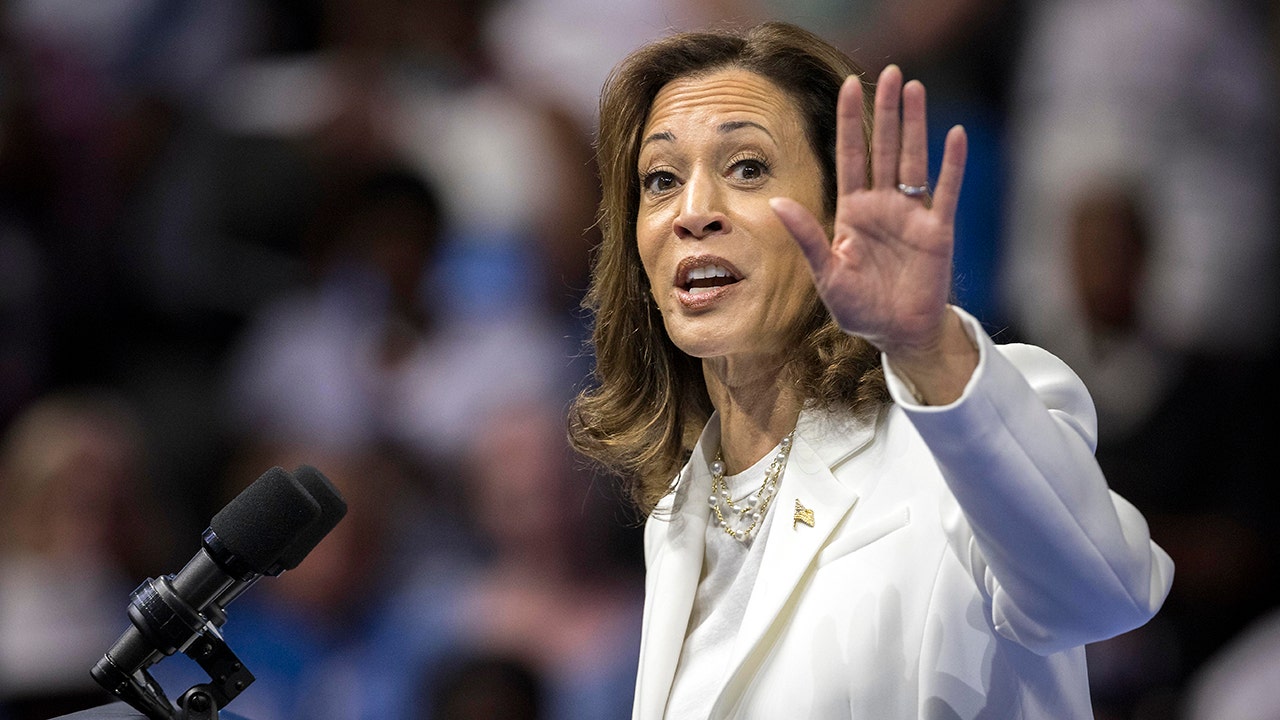






 English (US) ·
English (US) ·